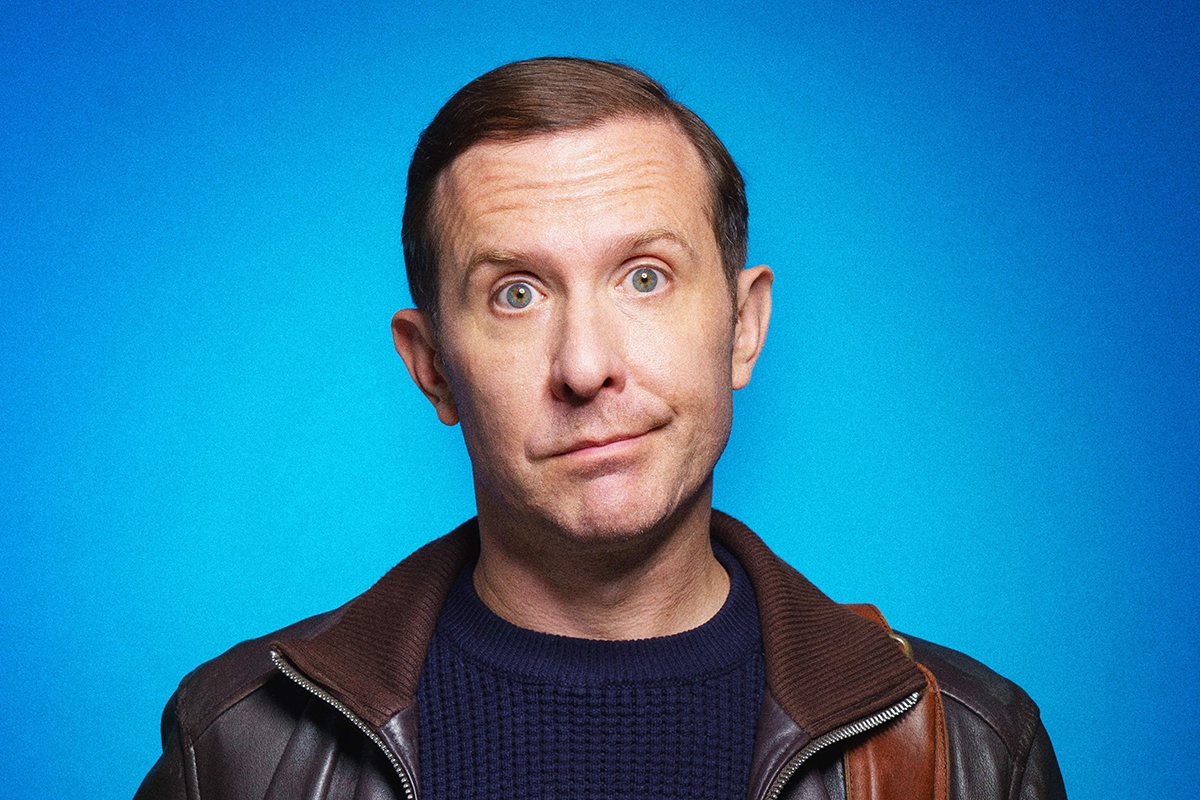The first episode of the new season of “Hapless” features Jewish journalist Paul Green (Tim Downie of Netflix’s “Geek Girl”) and his father getting pretty, um, lewd with some Sephardi stuffed zucchini. The former makes some racist comments about Sephardic Jews (saying their services sound like “wailing” and that “they all marry their own cousins”) and Paul’s sister, Naomi, who roped the two into helping with the dish for her date with a Sephardi man, tries to diffuse the racism with some jokes: “Do you know that Whitney Houston song ‘I want to dance with Sephardi?'” That sets the group off to the races with Sephardi song parodies (which honestly, as someone who covers Jewish parodies for this very site, I think we need more of).
When Naomi’s son Joshie asks what Sephardi means, she explains, “A long, long time ago, Sephardis used to live in Spain,” before adding, “And Turkey and Egypt and Morocco.”
“So they live on holiday,” Joshie surmises.
“Exactly,” Naomi replies, “so they got lemon and tomatoes and sunshine, and we got centuries of beetroot and turnips and ice.” A few minutes later, the Sephardi sunshine dish turns borderline x-rated as Paul and his father find that scooping out the cores of the zucchinis remind them of a more carnal, less culinary act.
That scene is truly emblematic of how purely irreverent the show is. “Hapless” is a comedy that centers around Green’s work at a Jewish magazine — the show was originally named “The Jewish Inquirer.” Every episode, he is working on a new story, and just dealing with the annoyance and quandaries of his daily life and that of his closest companions — his sister, Naomi and his best friend Simon (Josh Howie.) Sinyor plays the omnipresent voice of Paul’s editor, who gives him quirky assignments about Jewish life, and at the end of every episode, we get to see a bunch of ridiculous Jewish headlines for articles that sometimes hit very close to home.
“Hapless” is a Jewish family show, not in the sense that it’s appropriate for the whole family, because it certainly isn’t (well, I guess that depends on what family you have and how they feel about porn moguls and lewd zucchini jokes). But it was the show’s (Sephardic) creator Gary Sinyor who cooked the zucchini for that aforementioned episode — in his own house, no less, where his own kid plays Paul’s nephew, Joshie. During a virtual interview with Sinyor, I’m given a tour of the set, where I get to meet his son and daughter, who both have roles in the show (in fact, the former interrupts us to ask for a game of Uno).
Sinyor says working with his kids is amazing — they’re both consummate professionals, patiently doing take after take. His daughter, Amy, who plays a chess girl in this new season, had to be especially understanding about the show being filmed in her actual house. Sinyor shares, “Before we started shooting, we had to go around taking pictures of my daughter down from the halls,” he laments.
“Hapless” is wonderfully cringe and funny, and it makes jokes about every kind of Jew under the sun — and not just Jews, but every type of human, too. When writing, Sinyor, the veteran filmmaker behind “Leon the Pig Farmer,” often thinks to himself, “who’s being an idiot today?” and “what’s annoying?” and writes about that. The episodes often end up being prophetic, like one about a Jewish porn mogul and his rabbi advisor released a year before stories came out about the vice president of the company that owns Pornhub, Solomon Friedman, being an ordained rabbi. Or there’s the episode in which Paul dissects and workshops the saying “from the river to the sea” with a man trying to get him to sign a petition, which actually got the show taken off British Airways programming after October 7.
“[British Airways] rang up on the 11th of October and said ‘we don’t want to take sides,'” Sinyor says about the episode. The airline has since reinstated the show into their programming, and Sinyor has been magnanimous about it, but there’s something so strange about a Jewish British show being taken off the (literal) air because of October 7.
“Taking a side” isn’t something Sinyor’s show really does, or if it does, it’s mostly the side of humor. Paul Green may not be the most ethical of journalists, but Downie, who is charmingly irreverent in the role, exudes a kind of annoying curiosity, a desire to ask the most taboo questions and to play “devil’s advocate” (or whatever the Jewish equivalent of that is). As someone who has done her fair share of interviews for Jewish media, I feel like Green both asks all the questions that I want to ask and the questions that I know better than to ask. He has no filter, but also no real malevolence or true political agenda.
Paul has been compared to Larry David, and while they both have a tendency to ask the annoying and inappropriate questions, Sinyor doesn’t really feel like his show is too similar to the “Seinfeld” creator’s show “Curb Your Enthusiasm.”
“It’s very interesting that we’ve had all these comparisons to ‘Curb.’ I think that’s just a shorthand because they can’t think of anything else to compare it to. But Paul has practically zero money. He’s got no celebrity, no wealth. He’s got nothing… He’s also angry as a character, Larry David.”
Like his protagonist, Gary Sinyor doesn’t have any kind of a political agenda with this show or a lot of anger, either. At no point does he give me a spiel about the importance of having Jewish representation on TV at this fraught moment in history. This show is less about a Jewish agenda, more a case of writing what you know.
In fact he doesn’t feel like October 7 has revealed anything particularly new to him about being a Jew in the UK. He does have something to say about Jewish representation on British TV, which is very rare and often secular, which he says is “terrible.” He is annoyed when it’s actors and big personalities instead of the British chief rabbis who are asked to answer questions for all British Jewry on TV. He doesn’t think that Jewish representation is part of British TV’s “diversity” agenda. But he’s also not particularly surprised or chagrined about it.
Sinyor thinks about the average British TV viewer, who doesn’t likely know many Jewish people — there are just 200,000 Jews in the country of 60 million — listening to TV dissections about antisemitism and islamophobia. “My feeling is that most English people are just like ‘shut up, let me watch some comedy.'”
Recently, Sinyor was watching Jerry Seinfeld’s speech at Duke University to new graduates, and what he said really resonated with him. Seinfeld talked about how important it is to retain your ability to laugh at things. “The thing that gets you through is having a sense of humor,” Sinyor says.
“And I do think we’re losing it. I think we are losing our ability to laugh at things that are either laughing at us or with us. Who cares? If they’re laughing — it’s a good thing. I think we’ve just gone very serious as a society.” If Sinyor’s irreverent humor has an agenda, it is that: to allow us to take ourselves less seriously, to give us license to laugh through the hard times.
“Hapless” is streaming on Peacock.








